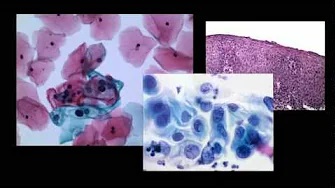Document Type
Article
Publication Date
3-15-2021
Abstract
T cell acute lymphoblastic leukemia (T-ALL) is an aggressive hematologic malignancy with inferior outcome compared with that of B cell ALL. Here, we show that Runt-related transcription factor 2 (RUNX2) was upregulated in high-risk T-ALL with KMT2A rearrangements (KMT2A-R) or an immature immunophenotype. In KMT2A-R cells, we identified RUNX2 as a direct target of the KMT2A chimeras, where it reciprocally bound the KMT2A promoter, establishing a regulatory feed-forward mechanism. Notably, RUNX2 was required for survival of immature and KMT2A-R T-ALL cells in vitro and in vivo. We report direct transcriptional regulation of CXCR4 signaling by RUNX2, thereby promoting chemotaxis, adhesion, and homing to medullary and extramedullary sites. RUNX2 enabled these energy-demanding processes by increasing metabolic activity in T-ALL cells through positive regulation of both glycolysis and oxidative phosphorylation. Concurrently, RUNX2 upregulation increased mitochondrial dynamics and biogenesis in T-ALL cells. Finally, as a proof of concept, we demonstrate that immature and KMT2A-R T-ALL cells were vulnerable to pharmacological targeting of the interaction between RUNX2 and its cofactor CBFβ. In conclusion, we show that RUNX2 acts as a dependency factor in high-risk subtypes of human T-ALL through concomitant regulation of tumor metabolism and leukemic cell migration.
Recommended Citation
Matthijssens F, Sharma ND, Nysus M, Nickl CK, Kang H, Perez DR, Lintermans B, Van Loocke W, Roels J, Peirs S, Demoen L, Pieters T, Reunes L, Lammens T, De Moerloose B, Van Nieuwerburgh F, Deforce DL, Cheung LC, Kotecha RS, Risseeuw MD, Van Calenbergh S, Takarada T, Yoneda Y, van Delft FW, Lock RB, Merkley SD, Chigaev A, Sklar LA, Mullighan CG, Loh ML, Winter SS, Hunger SP, Goossens S, Castillo EF, Ornatowski W, Van Vlierberghe P, Matlawska-Wasowska K. RUNX2 regulates leukemic cell metabolism and chemotaxis in high-risk T cell acute lymphoblastic leukemia. J Clin Invest. 2021 Mar 15;131(6):e141566. doi: 10.1172/JCI141566. PMID: 33555272; PMCID: PMC7954605.

